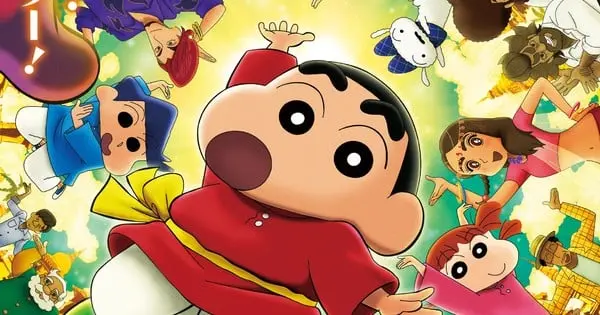The highly anticipated Chinese releases of the Japanese animated film Crayon Shin-chan the Movie: Super Hot! Scorching Kasukabe Dancers and the live-action Cells at Work! have been indefinitely postponed, Chinese media outlets reported on Monday. The decision comes amidst a deepening diplomatic dispute between Beijing and Tokyo, primarily stemming from recent remarks made by Japanese Prime Minister Sanae Takaichi regarding Taiwan.
Both films were initially slated for release in the coming weeks; Crayon Shin-chan was scheduled for December 6, and Cells at Work! for November 22. No new release dates have yet been announced for either production.
Diplomatic Row Over Taiwan Spurs Film Delays
The postponement of these Japanese films in China is directly linked to escalating political tensions between the two East Asian powers. The latest surge in friction was ignited by comments made by Japanese Prime Minister Sanae Takaichi on November 7. Takaichi stated that a potential Chinese attack on Taiwan could be considered “a situation threatening Japan’s survival,” which, under a 2015 law, could permit Japan to take military action.
China, which views democratic Taiwan as its own territory and has not ruled out the use of force to bring it under its control, reacted with strong condemnation to Takaichi’s remarks. Chinese diplomatic officials have since criticized the comments, and the Chinese foreign ministry has advised its citizens against non-essential travel to Japan. Additionally, Chinese airlines began offering free flight refunds for routes to and from Japan last Saturday.
Impact on Japanese Cinema in the Chinese Market
Chinese state broadcaster CCTV and China Film News, a publication supervised by the state-backed China Film Administration, indicated that the decision to delay the films was a “prudent decision” made by film importers and distributors. They cited “souring domestic audience sentiment” and a comprehensive assessment of the market performance of Japanese imports as key factors. “Japan’s provocative comments will inevitably affect Chinese audiences’ perception of Japanese movies,” China Film News stated.
This sentiment appears to have already impacted other Japanese cinematic releases. While Demon Slayer: Kimetsu no Yaiba – The Movie: Infinity Castle – Part 1: Akaza Returns initially saw strong box office performance in China, its earnings reportedly declined significantly after Prime Minister Takaichi’s statements due to “strong dissatisfaction from Chinese audiences.”
Previously Scheduled Films Affected
- Crayon Shin-chan the Movie: Super Hot! Scorching Kasukabe Dancers: This animated comedy, part of a beloved franchise popular in China, was set to premiere on December 6.
- Live-Action Cells at Work!: Based on the popular manga about anthropomorphized human cells, this film was scheduled for release on November 22 and had already commenced pre-sales, generating a significant amount in initial ticket sales.
Despite these postponements, not all Japanese films have been affected. Two other Japanese movies, 1st Kiss and Happyend, are still slated for release on December 5, according to ticketing platforms.
A Pattern of Cultural Retaliation
This isn’t the first instance where geopolitical tensions have led to the restriction of foreign cultural content in China. Around 2016, the Chinese administration under President Xi Jinping notably restricted South Korean pop culture content in retaliation for South Korea’s deployment of the Terminal High Altitude Area Defense (THAAD) missile defense system. That restriction is widely believed to still be in effect, demonstrating a precedent for such cultural measures in response to diplomatic disagreements.
The current situation highlights the intricate relationship between international politics and the entertainment industry, particularly in a market as significant as China’s. The indefinite delay of these popular Japanese films underscores the ripple effects of the ongoing diplomatic dispute between Beijing and Tokyo.









